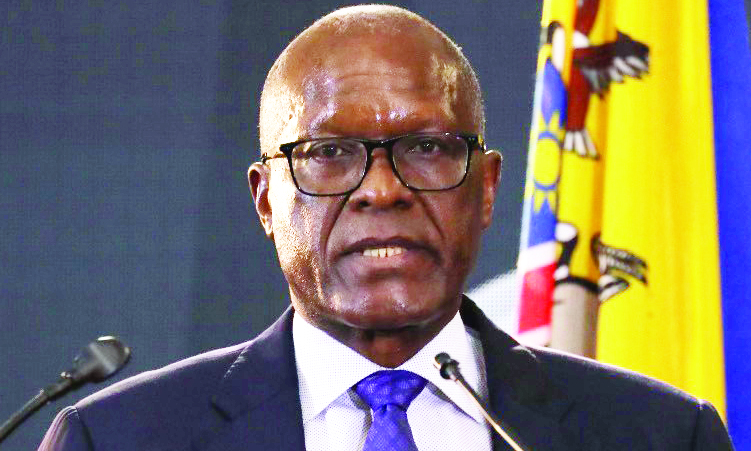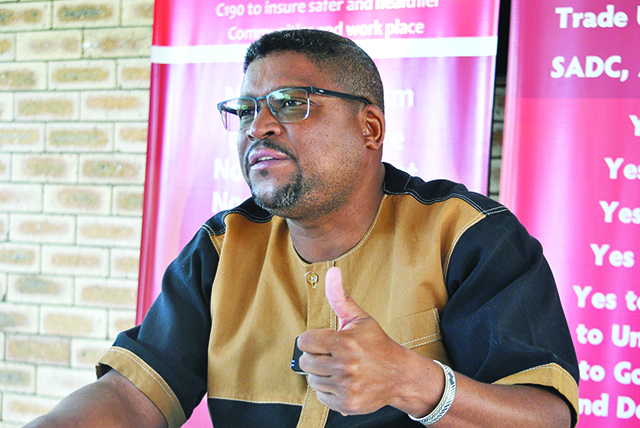Police inspector general Joseph Shikongo, who is also the chairperson of the Southern African Regional Police Chiefs Cooperation Organisation (SARPCCO), has highlighted the lack of cooperation by law-enforcement agencies at national and regional level in combating transboundary crime.
Speaking at a multi-stakeholder conference, he emphasised the challenges of fragmented approaches, indicating that criminals are capitalising on these gaps in the system.
The comments were made at the three-day regional multi-stakeholder transnational organised crime conference, themed ‘Forging Alliances’, which started at Swakopmund on Monday.
The conference aims to bolster collaboration and unified action against transboundary crime, a pressing issue that continues to impact Southern African Development Community (SADC) countries.
Shikongo stressed the need for alliances in the fight against transnational crimes.
“They merge and collapse our borders in the process . . . they digitalise their criminal activities and it just takes a click for them to commit their crimes thousands of miles away from any destination,” he said.
He went on to highlight the restrictions law-enforcement agencies face due to the need to operate within international jurisdictions.
“Criminal syndicates take advantage of this to outmanoeuvre law-enforcement agencies,” he said.
The acting director of the organ on politics, defence and security affairs of the SADC secretariat, Kealeboga Moruti, echoed Shikongo’s sentiments.
She called for a “sustainable inclusive and coordinated approach” to combating transnational organised crime, emphasising the importance of establishing operational national task forces.
The head of the Interpol Regional Bureau SARPCCO co-ordination office, Sello Moerane, also voiced concerns about the impact of transnational organised crime on the region’s security, economic prosperity and development.
Moerane called for increased regional capabilities, particularly in the field of digital forensics, to counter evolving cybercrime.
The fight against transboundary crime in SADC has been met with numerous challenges, ranging from human trafficking and drug trafficking to wildlife crime, illegal mining, cybercrime and weapons smuggling.
Some trends and findings that were prevalent leading during 2021 indicated that according to the United States State Department’s 2020 ‘Trafficking in Persons’ report, many SADC countries were considered source, transit, and destination countries for human trafficking.
These included countries like South Africa, Zambia, and Zimbabwe.
The United Nations Office on Drugs and Crime (UNODC) noted an increase in drug trafficking through the southern route (from Afghanistan through Africa to destination countries) leading up to 2021.
Eastern and southern Africa have been identified as major transit points for heroin destined for international markets.
According to the World Wildlife Crime Report by UNODC in 2020, southern Africa is significantly impacted by wildlife crime, particularly the illegal ivory trade and rhino poaching.
A report by Global Witness in 2020 highlighted that Zimbabwe, a member of the SADC, was losing billions of dollars a year because of the smuggling of gold, particularly to Dubai.
The SADC region has seen a rise in cybercrime activities, including financial fraud and data breaches.
The Small Arms Survey by the Graduate Institute of International and Development Studies in Geneva has consistently reported on illicit arms trafficking in the SADC region.
All these issues will be discussed at the conference, with experts and stakeholders sharing their knowledge and experiences.
Stakeholders agreed that as crime syndicates continue to exploit gaps in law enforcement, enhanced regional and national cooperation is seen as vital to mitigating these threats and safeguarding the region.
Stay informed with The Namibian – your source for credible journalism. Get in-depth reporting and opinions for
only N$85 a month. Invest in journalism, invest in democracy –
Subscribe Now!






